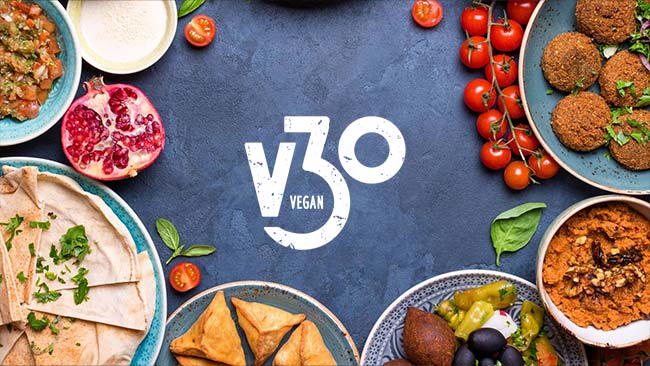Heart disease and cholesterol

The term heart disease is often used instead of cardiovascular disease (CVD) and describes a chronic disease of the heart and blood vessels.
The disease is caused by fat layers clogging the inside of your arteries (blood vessels), hardening and narrowing them (atherosclerosis). This reduces blood flow to the heart, brain or body and there’s a risk that a blood vessel can be completely blocked resulting in a heart attack, stroke or thrombosis. High cholesterol levels in your blood are the main problem, contributing building material for these fat layers, also called cholesterol plaques. Narrower arteries also mean higher blood pressure – that’s often the first sign that something’s wrong.
A certain amount of cholesterol in the blood is essential for good health but your body makes all it needs. Eggs contain high amounts of cholesterol which is not only unnecessary for your health but may be downright harmful for many people. Just one egg contains on average 187 milligrams of cholesterol and the recommended daily limit for people at risk of heart disease is 200 milligrams. A large egg can easily exceed this amount. Cholesterol from food doesn’t always raise your cholesterol levels but in people with a certain genetic makeup, it does and they need to be very careful about cholesterol in their diet (Kang and Zivkovic, 2021). In others, eating cholesterol together with saturated fat – for example having eggs with bacon or egg-based dessert with cream – is the key combination that leads to rising cholesterol levels in the blood.
However, cholesterol is not the whole story – there’s more.
Eggs contain a substance called choline – an essential nutrient needed for cell membranes, nerve signal transmission and other metabolic functions. Too much, however, can be damaging to health and eggs are by far the richest source. We can get safe amounts of choline from plant foods but eggs simply supply too much.
Research into choline and heart disease found that one of the by-products of choline called TMAO increases the build-up of cholesterol plaques in your blood vessels, promoting heart disease (Tang et al., 2013). The higher the levels of TMAO, the higher risk of stroke and heart attack. Research studies show that different people produce different amounts of TMAO after eating eggs – some produce very little while others produce high amounts (Kang and Zivkovic, 2021). Scientists think that this difference is down to gut bacteria.
Regardless of what combination of genes and gut bacteria you have, there are many studies showing that egg consumption increases the risk of heart disease in general. For example, one large study found that each 300 milligrams of cholesterol a day increased the risk of heart disease by 17 per cent and each half-egg a day increased the risk by six per cent (Zhong et al., 2019).
Interestingly, another large study of over 500,000 people had similar results – they found that each half-egg a day increased the risk of dying from heart disease by seven per cent, while each 300 milligrams of cholesterol eaten in a day increased the risk of dying from heart disease by 16 per cent (Zhuang et al., 2021).
An Italian study found that people who ate more than four eggs a week had a 75 per cent higher risk of dying from cardiovascular disease than people who ate just one egg a week or less (Ruggiero et al., 2021). People who ate two to four eggs had a 43 per cent higher risk.
One study set out to investigate the effect of plant and animal protein on mortality, heart disease and cancer and the results are truly eye-opening (Huang et al., 2020). They found that substituting just three per cent of daily energy intake from egg protein with plant-based protein can lead to 26-28 per cent lower risk of dying from cardiovascular disease and 25-33 per cent lower risk of fatal stroke.
And a study of postmenopausal women showed that eating one egg a day increased their risk of heart disease by 14 per cent compared to eating less than one egg a week (Chen et al., 2021).
There are also studies that didn’t find this relationship and as we are learning more about gut bacteria and genes, it’s becoming clear that when it comes to eggs, each person is a little different in how their body processes them. However, there’s no way of knowing what exactly goes on in your body and it’s best to tweak your diet to prevent heart disease than to find out your blood pressure and cholesterol levels are sky high and you need a surgery.
Vegans and people who eat predominantly wholefood plant-based diets have lower blood pressure and cholesterol levels than all other diet groups and a much lower risk of heart disease – 25-57 per cent (Bradbury et al., 2014; Le and Sabaté, 2014; Appleby and Key, 2016; Dinu et al., 2017; Benatar and Stewart, 2018; Kahleova et al., 2018; Korakas et al., 2018; Matsumoto et al., 2019).
Ditching eggs is not just a healthy choice, it’s also an ethical and sustainable one. If you’re used to meals based around eggs, meat and dairy, the idea of a plant-based diet may be daunting but we’re here to help make it super easy!
Sign up to our daily emails for a week to receive mouth-watering meal plans, nutritional advice and health information.
If you want to try it for a month, sign up to 30 days of delicious vegan recipes, tips and product info… all free!
All about eggs
Find all the above and more in Viva!’s resources on eggs and egg farming:
An eye-opening guide about the health impacts of egg consumption, egg-laying hens and Viva! investigations – Cracked.
A factsheet summarising all you need to know about eggs and your health.
A handy chart showing you how to replace eggs in cooking and baking.






